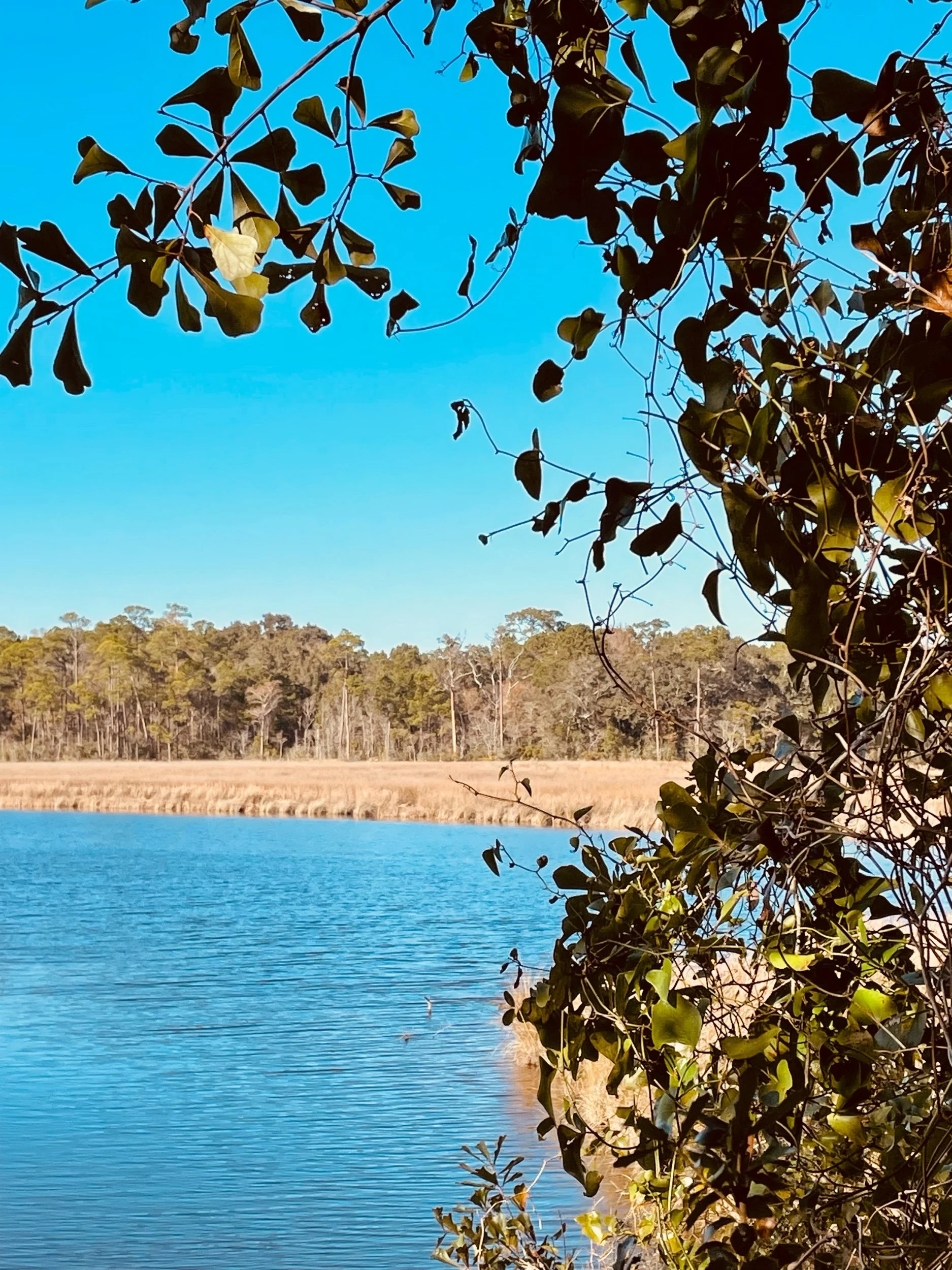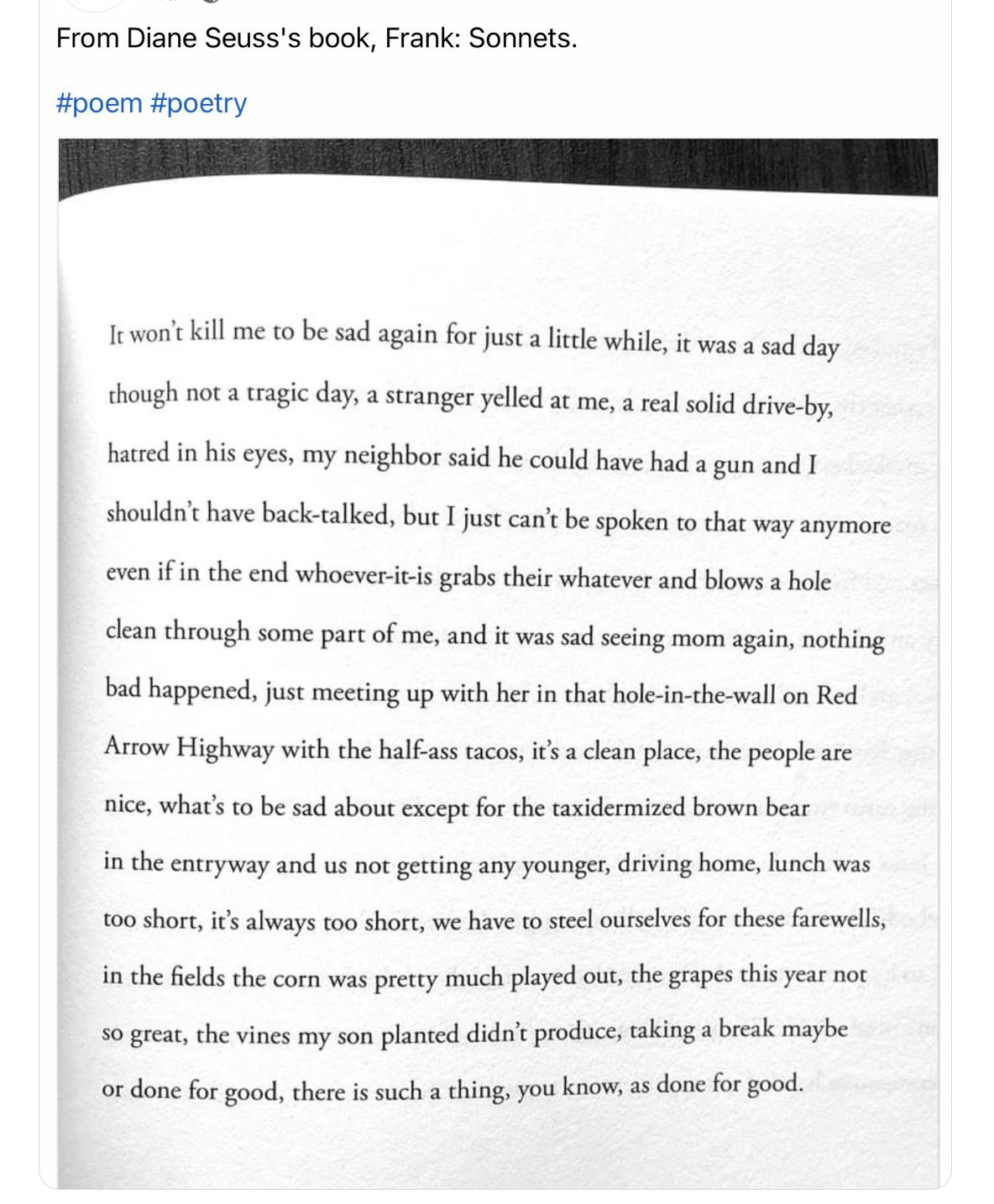Sorry for the delay but a busy week and a head full of fluff. So this post is in response to Twitter drama in which a poet who has elected herself gatekeeper for what is a sonnet or a poem directly attacked Diane Seuss for attention. I doubt I could respond as gracefully and as kindly as Diane Seuss did. Btw, her critic is also the same poet who proclaims erasures and centos are not poems, so while this poet is someone to ignore, asking what makes a poem a poem or a sonnet a sonnet is a good exercise for poets.
While the individual answers differ among poets and readers, most people know what a poem is even if they do not have specific criteria—perhaps it is density of language, rhythm (even if rhyme and meter aren’t needed for most people now) or simply a sense of awe or wonder from reading it. For me, adherence to a form or to accepted conventions is less important than the sense of wonder or surprise created in the reading or hearing of it. There are some poems that are fit all the requirements but are forgettable and others that push the boundaries in such a way that I don’t care if it is technically prose or poetry, I am lost in the world it created. What are your requirements or characteristics a piece of writing must have before you consider it a poem? Do you use the requirements/ingredients when you edit?
Some people have stricter requirements for a sonnet—must be fourteen lines in iambic pentameter in the Shakespearean or Italian/Petrarchan form. Contemporary poets such as Seuss and Terrence Hayes have moved the sonnet into new directs. Other poets, such as Donna Hilbert, have poems that feel like sonnets to me even though they do not consider them as such.
Note that the poem above has fourteen lines but certainly doesn’t follow the classical form. For many modern writers, the key requirement is the volta, or turn, in the poem. For me, there is such a turn in the poem where the narrator says, “what’s to be sad about” and then explains the reasons for sadness. I think on a quick, careless read, this poem could seem stream of consciousness without much craft (as described by another sour-ass gatekeeper), but the language is deliberate, with a thread running throughout and repetition carefully used. I have to admit I am biased though: reading Diane Seuss and getting to hear her read aloud brings me joy. I heartily recommend Still Life with Two Dead Peacocks and a Girl and frank: sonnets and plan to read her earlier collections.
For the first prompt, decide is required for a sonnet and write your own. Decide if you want to go full Petrarchan or modernize the form for yourself.
The second prompt is to write a poem to illustrating what “done for good” means to you.
The third prompt is to write about a “sad day / though not a tragic day.” Let the poem or story build from minor or not-so-minor inconveniences to what underlies most sorrow for you (or humanity in general) but overall keeping the specifics in.
The last prompt is to write a story or poem (a lament?) from the perspective of the taxidermied bear.
Bonus prompt: write about the real Elvis joining this group or what makes Elvis real as an archetype.
And just because I like this photo and the memory of that day with Don and my parents, here is a picture of a canal.
Good luck writing! Have fun!



